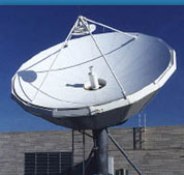 | « Back to article | Print this article |
Broadcasters, DTH firms lock horns over Trai move
 Broadcasters and Direct-to-Home (DTH) operators seem to be at loggerheads over Telecom Regulatory Authority of India's (Trai's) recommendation on lowering the cap on the wholesale rate that broadcasters can charge DTH operators.
Broadcasters and Direct-to-Home (DTH) operators seem to be at loggerheads over Telecom Regulatory Authority of India's (Trai's) recommendation on lowering the cap on the wholesale rate that broadcasters can charge DTH operators.
"Trai's recommendation is a small step in the right direction, as it has brought down the cap from 50 per cent to 35 per cent," said CEO of Tata Sky, Vikram Kaushik.
Trai has recommended that broadcasters charge DTH operators only 35 per cent of the fee they charge regular cable TV operators for their channels. This is because DTH allows an accurate record of subscribers opting for different channels, unlike the regular cable TV, where broadcasters must rely on the data reported by operators.
"The recommendation brings to light Trai's concerns over the severe under-reporting by cable operators. It will bring down the disparity in the prices paid by cable operators and DTH companies to broadcasters," said Director and CEO of Airtel DTH Services.
However, broadcasters are miffed with the recommendation, as it will curtail their earnings from the DTH companies. "What is the logic of 35 per cent? It's a completely random number. We are completely taken aback by the recommendations. It has come as a shock," said STAR India head Uday Shankar. He said the Indian Broadcasters Federation would protest against it.
DTH companies say broadcasters are overlooking the fact that DTH companies have brought in incremental revenues which are almost equivalent to what the cable industry had been contributing. "Broadcasters are looking at short-term gains and by protesting against the move by Trai, they will kill the golden goose," said Puri.
Meanwhile, broadcasters are preparing the pitch for a protest against Trai's recommendation. "Since retail rates have more or less bottomed out, any further options for DTH operators to renegotiate pricing from 50 per cent to 35 per cent will only serve to augment margins for operators at the cost of broadcasters without any corresponding benefits being passed on to the consumers.
